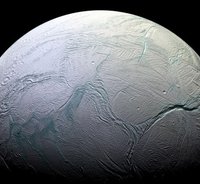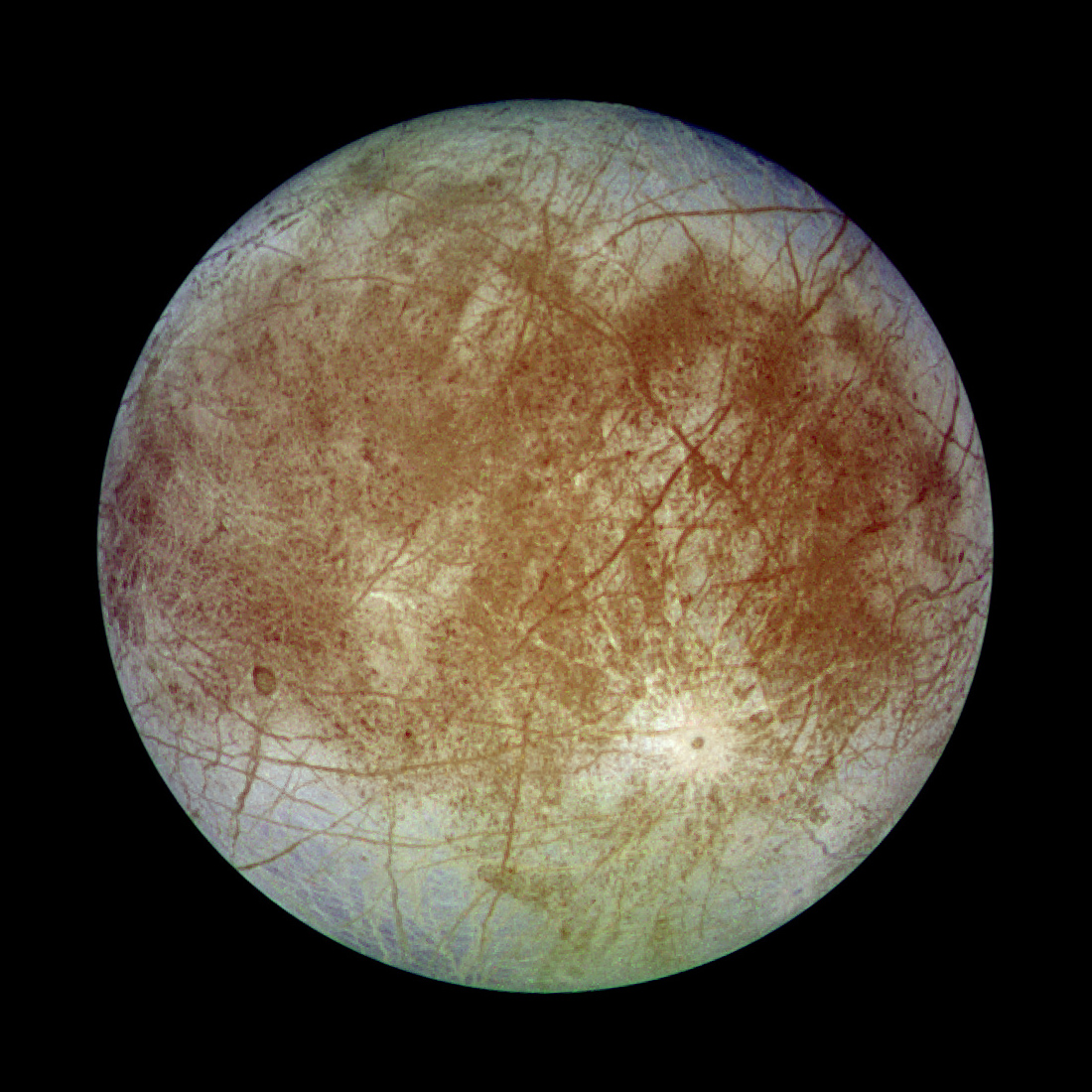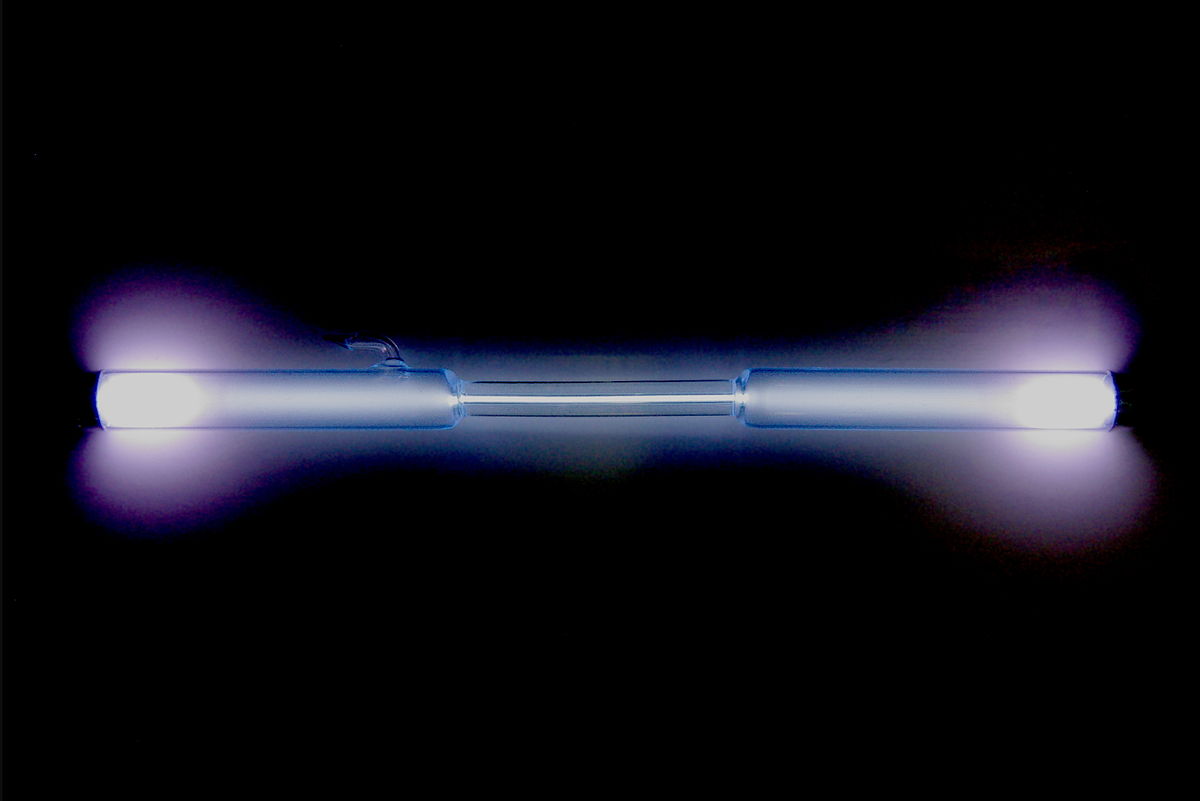
Geophysical measurements can reveal the structure of icy ocean worlds, including the transport of volatiles. The inferred interior density, temperature, sound speed, and electrical conductivity thus characterize their habitability. We explore the variability and correlation of these parameters using 1D internal structure models and available constraints on the thermodynamics of aqueous MgSO4, NaCl (as seawater), and NH3; pure water ice phases I, II, III, V, VI; silicates; and any metallic core that may be present. We identify limits in the thermodynamic data that narrow the parameter space that can be explored: insufficient coverage in pressure, temperature, and composition for end-member salinities of MgSO4 and NaCl, and for relevant water ices; and a dearth of suitable data for aqueous mixtures of Na-Mg-Cl-SO4-NH3.
For Europa, ocean compositions that are oxidized and dominated by MgSO4, versus reduced (NaCl), illustrate these gaps, but also show the potential for diagnostic and measurable combinations of geophysical parameters. The low-density rocky core of Enceladus may comprise hydrated minerals or anhydrous minerals with high porosity. Titan’s ocean must be dense; thin ice and high salinity imply high heat flux. Titan may have little or no high- pressure ice. Ganymede’s silicious interior is deepest among all known ocean worlds, and may contain multiple phases of high-pressure ice, which will become buoyant if the ocean is sufficiently salty. Eutectic oceans cannot be adequately modeled using available thermodynamic data. Callisto may also lack high-pressure ices, but this cannot be confirmed due to uncertainty in its moment of inertia.
 Getting Under Europa’s Skin
Getting Under Europa’s Skin Tracing Formation and Evolution of Outer Solar System Bodies Through Stable Isotopes and Noble Gas Abundances
Tracing Formation and Evolution of Outer Solar System Bodies Through Stable Isotopes and Noble Gas Abundances Photosynthesis, a Planetary Revolution
Photosynthesis, a Planetary Revolution Xenon: King of the Gases
Xenon: King of the Gases